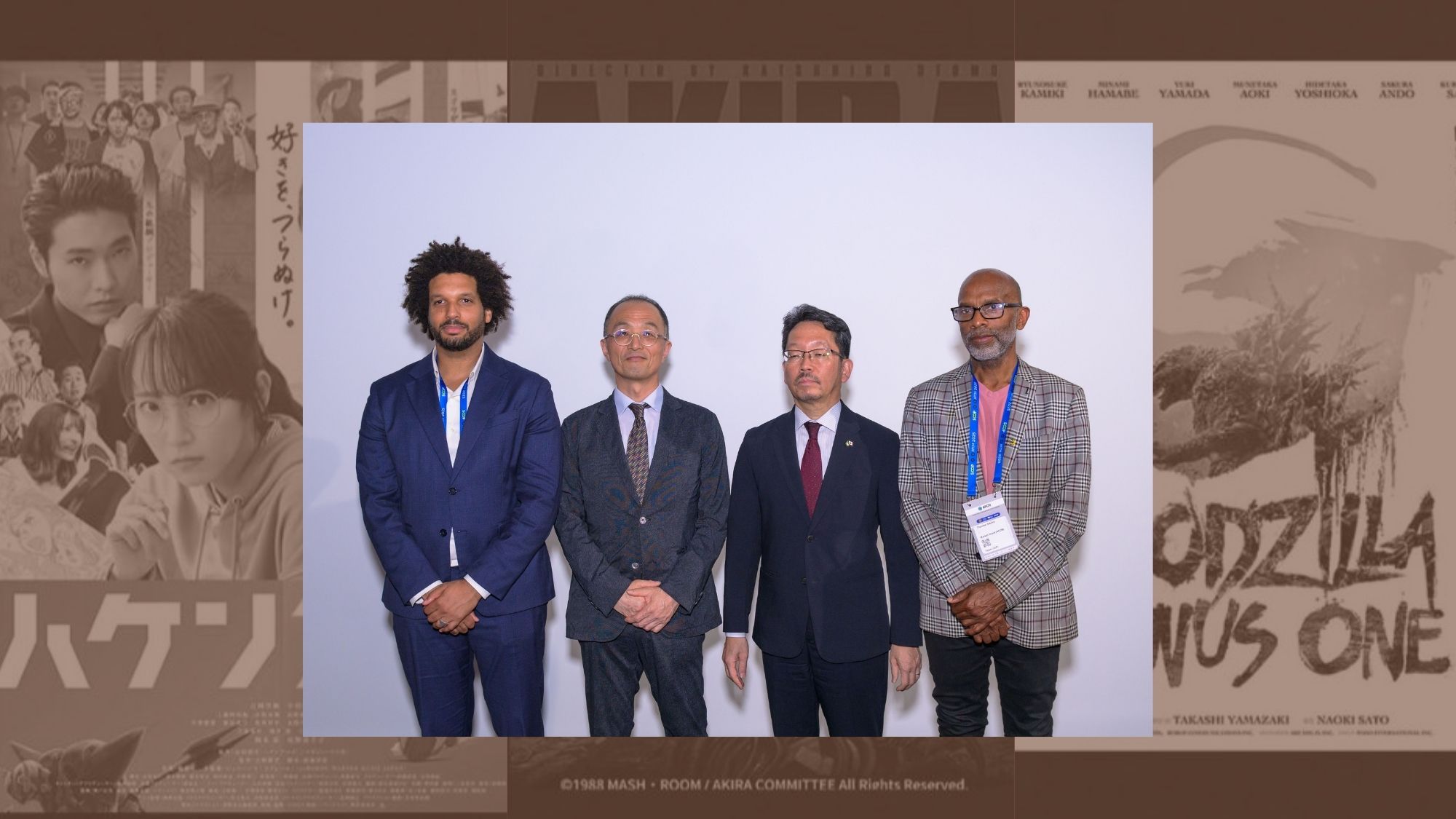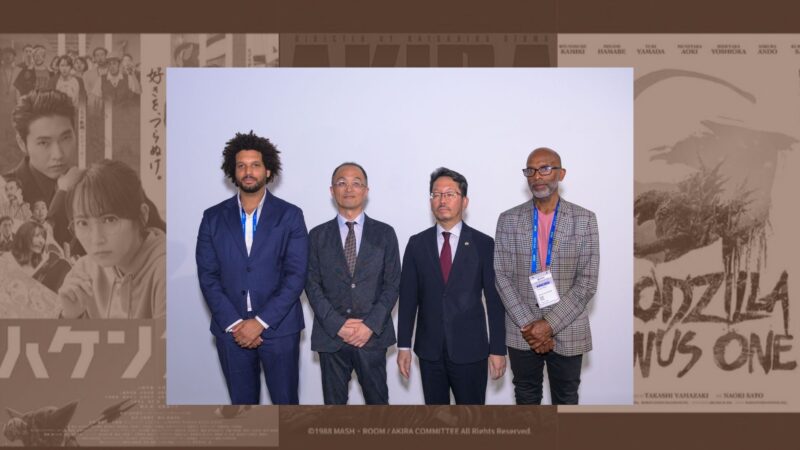
We’d spent the previous day talking about fashion and filmmaking, how Nigerian designers, stylists, and directors could work together to tell stories that look like us. The next morning, the conversation shifted continents.
It was “Japan Day” at the 14th African International Film Festival (AFRIFF), and the room at Filmhouse Twin Waters felt quietly electric.
The event, hosted under the AFRIFF Film & Content Market (AFCM), brought together key figures from both sides: Jean Fall, Head of Production at AFRIFF Film & Content Market; Themba Sibeko, AFCM’s Market Head; Masakazu Takahashi, General Manager of the Japan Foundation; and Hideo Suzuki, the Ambassador of Japan to Nigeria.
On paper, “Japan Day” was about film screenings. The films being shown: cult classic Akira and Oscar-winning Godzilla Minus One, are exports that have shaped how the world sees Japan and its film industry.
“This event showcases the rich diversity of Japanese cinema, providing a platform for cultural exchange and fostering greater understanding between the two nations-“States AFCM Market Head Themba Sibeko.
The festival serves as a catalyst for increasing Japanese and Nigerian trade, supported by AFRIFF and its new initiative, AFCM, which opens new avenues for collaboration and business opportunities. By sharing Japanese films, the festival inspires Nigerian filmmakers and audiences, while also introducing Japanese culture to a broader African audience.
Moreover, cultural exchange through film can lead to increased economic cooperation, as it promotes mutual understanding and trust. As Nigeria and Japan strengthen their cultural ties, it paves the way for increased trade, investment, and economic growth, ultimately benefiting both nations.
Sitting in the audience, it was impossible not to draw lines between this and what we’d heard the day before at the “Fashion × Film × Afrobeats” panel. Nigerian filmmakers and designers had called for authenticity, respect, and collaboration. Here, the Japanese delegation was making a similar case. In words and in presence.
The screenings ran from November 6–7 and featured both anime and live-action classics. If yesterday’s panel had shown us how fashion could make Nollywood’s stories travel, “Japan Day” showed us how film can make nations speak the same creative language. AFRIF








